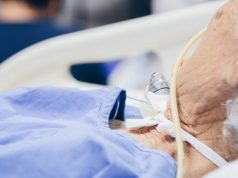The American Academy of Pediatrics recommendation applies to infants 19 months of age or younger
By Physician’s Briefing Staff HealthDay Reporter
WEDNESDAY, Aug. 16, 2023 (HealthDay News) — All infants should receive the new long-acting preventive monoclonal antibody for respiratory syncytial virus (RSV), the nation’s leading pediatrics group said.
The American Academy of Pediatrics (AAP) urged that access to the new medication, called nirsevimab, be equitable. The new medication may not be immediately available in all clinical settings. For that reason, the AAP also recommended continued use of another monoclonal antibody product, palivizumab, during the upcoming RSV season for children at high risk for severe illness.
“Pediatricians are sadly familiar with the dangers of RSV and its devastating consequences for some families,” AAP President Sandy Chung, M.D., said in an academy news release. “We are eager to offer all infants this protection and urge federal officials to see that it is made available and affordable in all communities.”
The U.S. Food and Drug Administration approved nirsevimab under the brand name Beyfortus. It is also recommended by the U.S. Centers for Disease Control and Prevention.
Clinical trials showed that nirsevimab reduces the risk for RSV requiring medical care by 75 percent. All infants younger than 8 months born during or entering their first RSV season should receive a single dose of nirsevimab, the AAP said. Infants and children aged 8 through 19 months who are at increased risk for severe RSV disease and entering their second RSV season should also receive a single dose. Eligible infants and children who cannot access nirsevimab should instead receive palivizumab, which includes a series of monthly doses.
The AAP is calling for a comprehensive strategy to ensure equitable access in hospitals, birthing centers, and other medical practices. Chung called the lack of access to the product for all children “alarming.” The AAP is concerned that families living in lower-income and underresourced communities and infants who are at greatest risk for severe RSV illness may face challenges accessing the medication.
Copyright © 2023 HealthDay. All rights reserved.








